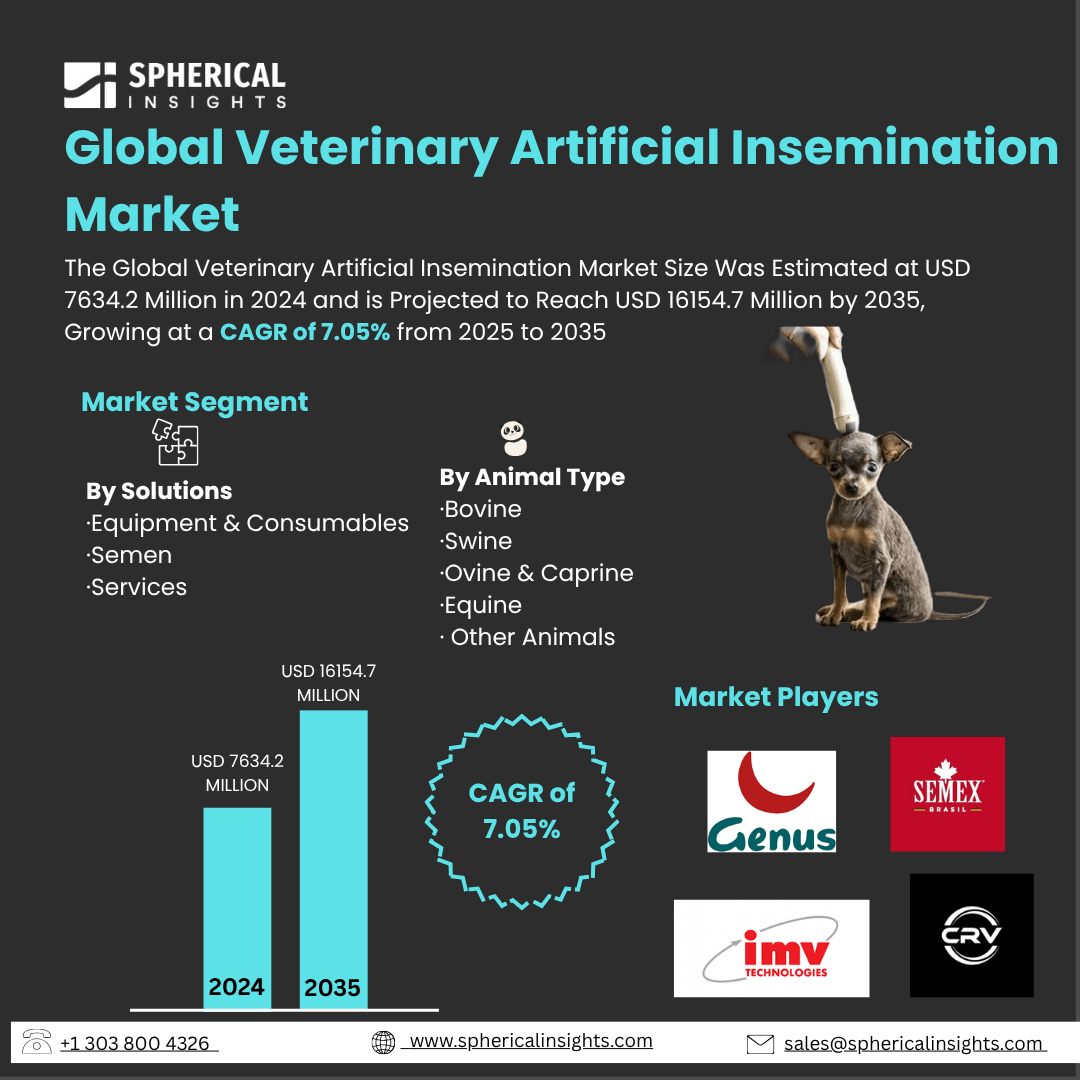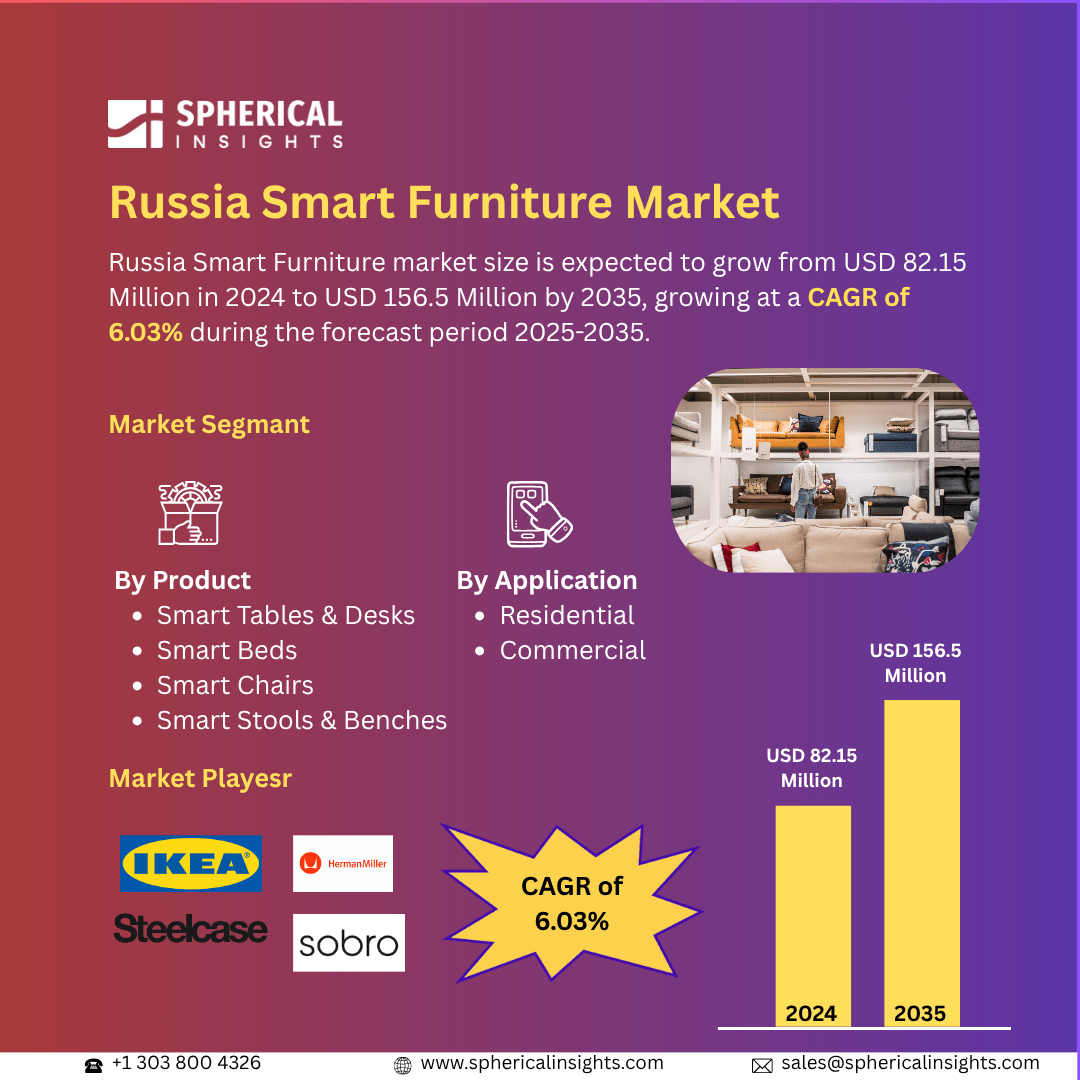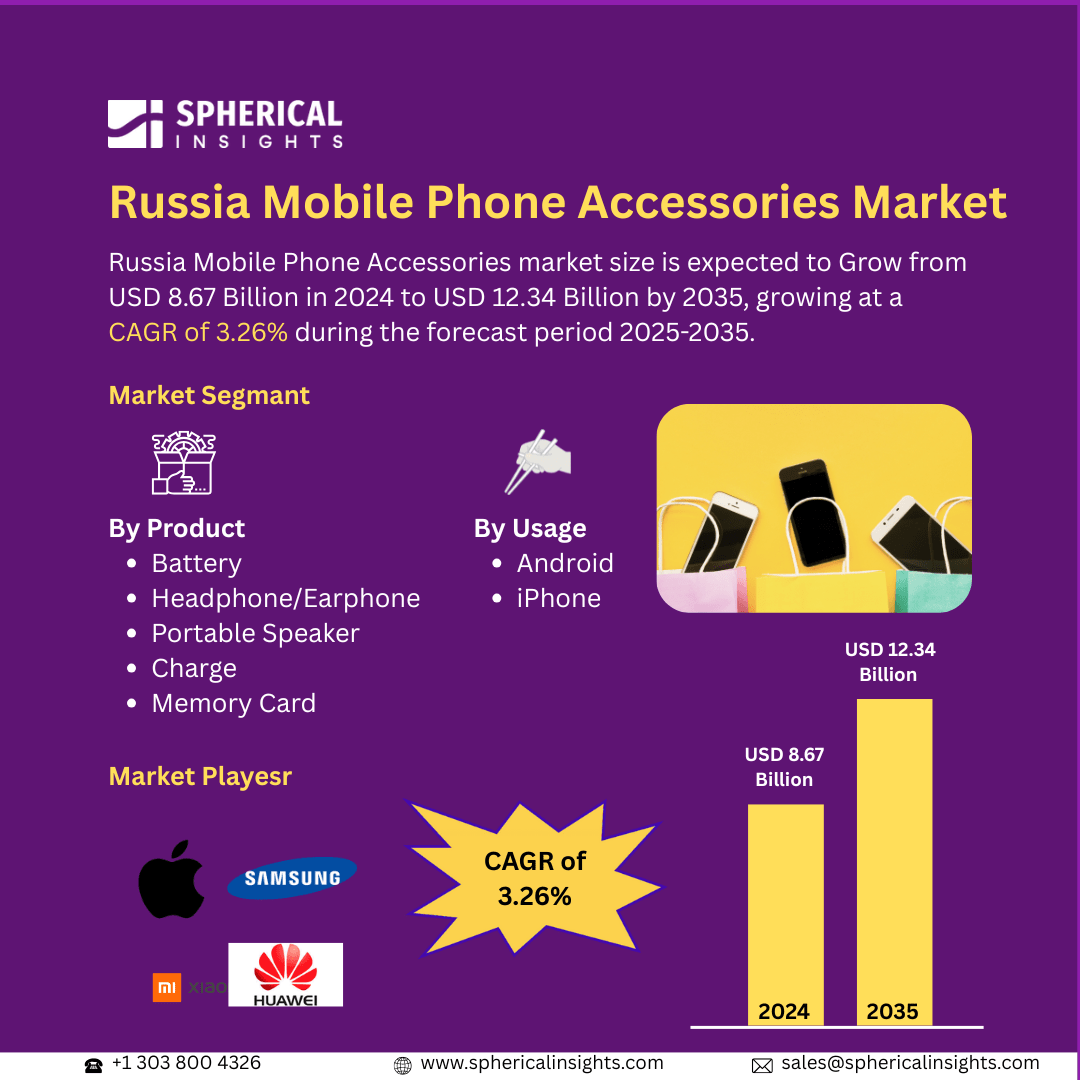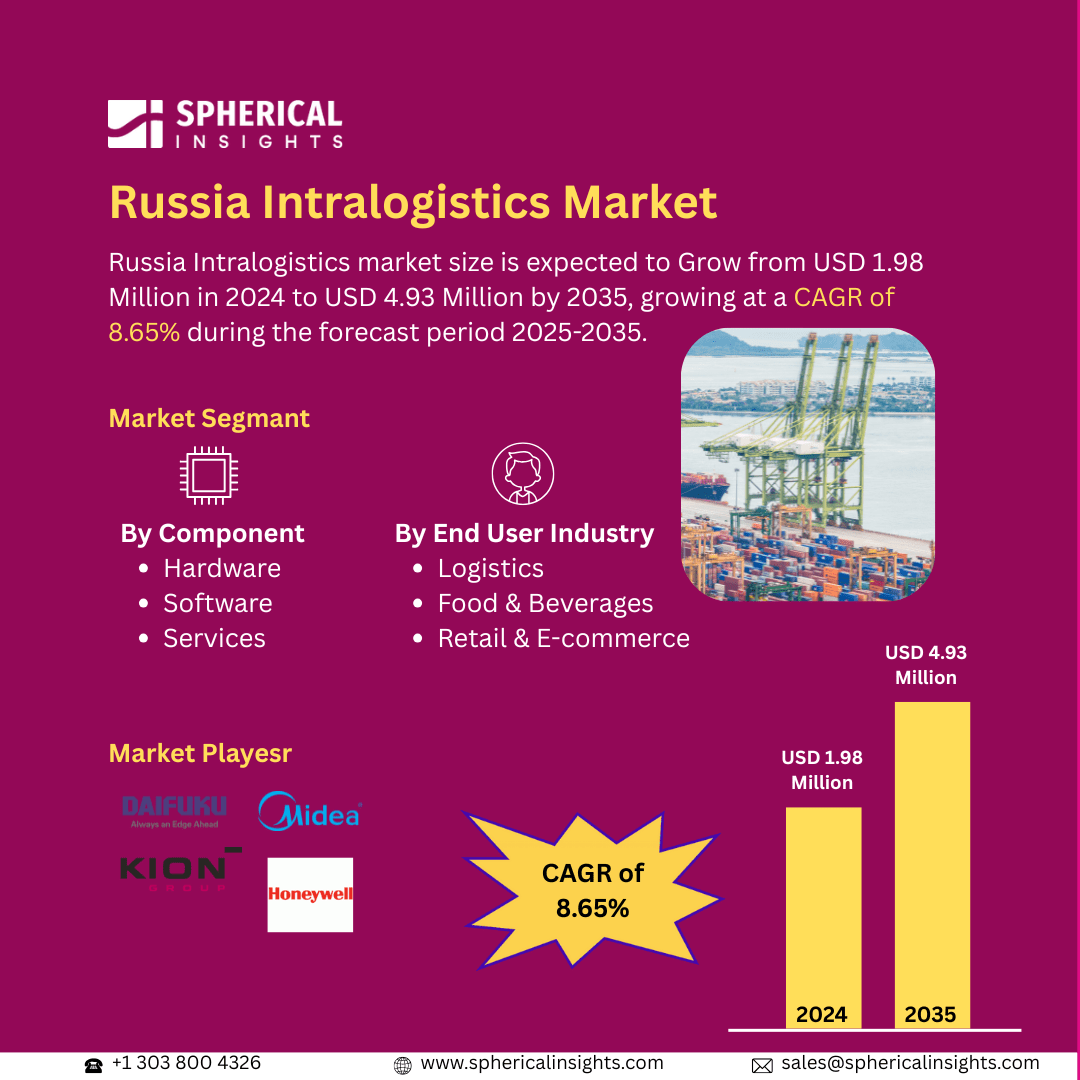Veterinary Artificial Insemination Market Summary
The Global Veterinary Artificial Insemination Market Size Was Estimated at USD 7634.2 Million in 2024 and is Projected to Reach USD 16154.7 Million by 2035, Growing at a CAGR of 7.05% from 2025 to 2035. Several key factors are driving the growth of the veterinary artificial insemination (AI) market, including an emphasis on enhancing cattle genetics and production, improvements in reproductive technologies, and an increase in the demand for animal protein.
Key Regional and Segment-Wise Insights
- In 2024, North America held the largest revenue share of over 30.37% and dominated the market globally.
- In 2024, the services segment had the highest market share by solutions, accounting for 40.38%.
- In 2024, the bovine segment had the biggest market share by animal type.
Global Market Forecast and Revenue Outlook
- 2024 Market Size: USD 7634.2 Million
- 2035 Projected Market Size: USD 16154.7 Million
- CAGR (2025-2035): 7.05%
- North America: Largest market in 2024
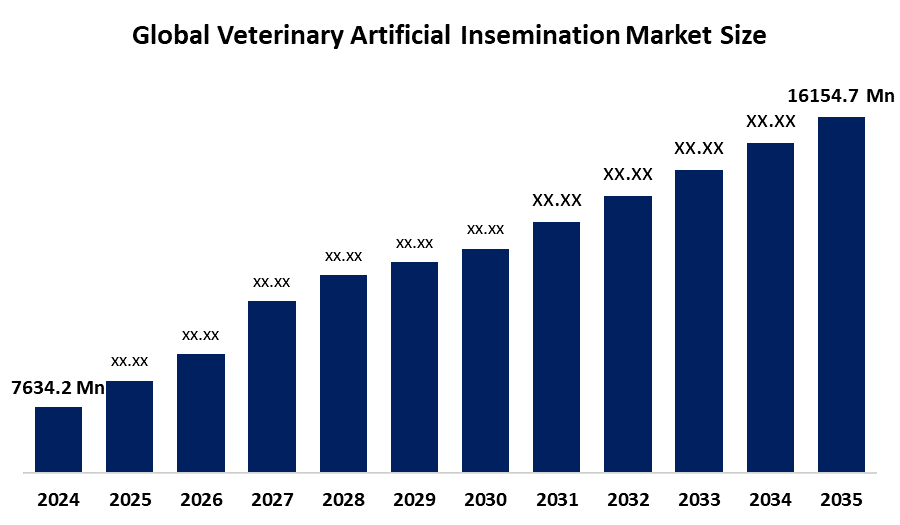
The veterinary artificial insemination (AI) market incorporates products and technologies that assist animal breeding through artificial insemination procedures. The industry encompasses equipment along with procedural techniques that assist in inseminating female animals and handling semen collection, processing, and distribution operations. The veterinary artificial insemination (AI) market experiences significant growth because of rising awareness about animal welfare and controlled breeding practices. This approach lessens the dangers and mental strain present during natural breeding, so it creates safer and more productive animal conditions. The increasing knowledge about animal reproduction has opened up broader acceptance of AI services among breeders and pet owners. The increasing interest among owners to have companion animals like dogs and cats with desired traits, along with improved health and temperament, drives this issue. The market growth receives acceleration through government initiatives, which focus on improving cattle output and maintaining genetic diversity while managing diseases across multiple locations.
The expanding requirement for animal-derived products, especially dairy products, because of changing eating habits and population expansion, constitutes a major driving force behind veterinary AI applications. The rising use of Bovine AI stems from nations like India requiring enhanced farm output to fulfill their dairy product needs. Veterinary AI service providers deliver complete reproductive management solutions through semen processing, along with fertility testing and ultrasound diagnosis, and estrus synchronization. Their expertise ensures precise insemination scheduling, which improves conception chances while decreasing reproductive complications. The worldwide growth of animal commerce, along with rising investments in sophisticated AI technology, strongly supports the global development of veterinary AI service markets.
Solutions Insights
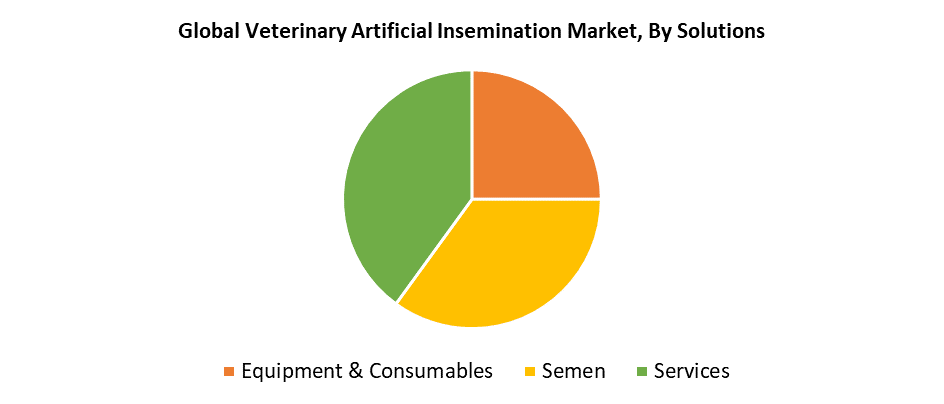
The services segment leads the veterinary artificial insemination market with 40.38% market share in 2024 because of its comprehensive, specialized offerings. The range of services provided includes all stages of reproductive management from post-procedure care to hormone management and semen assessment, insemination services, and estrus detection. Providers with a complete reproductive biology understanding deliver precise and effective inseminations, which lead to optimal breeding results. The precision and effectiveness of services improve when providers use advanced semen processing equipment together with sophisticated diagnostic tools. Each animal receives a personalized breeding program through assessment of reproductive health status combined with genetic background and breeding goals. The services segment maintains its importance in improving reproductive outcomes for various species through its individualized approach, which continues to drive market demand.
The veterinary artificial insemination market experiences significant growth within the semen segment throughout the forecasted period, because of rising needs for superior progeny and better animal productivity. The breeding industry moves toward obtaining high-quality semen from genetically advanced sires to enhance livestock and companion animal characteristics such as milk output and disease protection, as well as growth pace and behavioral traits. Technological progress in semen collection, together with cryopreservation and sexed semen processing, enhances both the usefulness and effectiveness of these methods. The availability of frozen and sex-sorted semen has led to higher conception rates because it enables breeding operations throughout the year with specific results. The international trade of superior genetic material facilitates the worldwide distribution of semen, which represents a vital and quickly expanding part of veterinary AI solutions.
Animal Type Insights
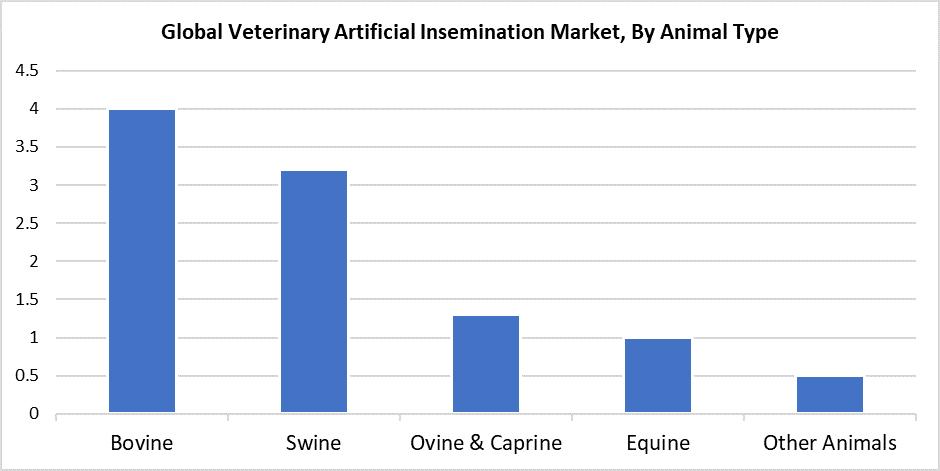
The bovine segment represented the largest portion of the veterinary artificial insemination market in 2024 due to its fundamental role in global milk and meat production. The increasing need for superior dairy cattle, along with high-quality beef meat, has driven AI adoption as a tool to enhance genetic quality, production yield, and disease resistance. Government initiatives and NGO programs focused on rural development, along with dairy profitability, help drive the adoption of AI technology in bovine animals. The technology enables producers to select higher-quality sires and maintain breed standards through controlled breeding and precise pedigree tracking. The technology enables cost-effective, large-scale reproduction that enhances operational efficiency. The different components combine to maintain bovine segment dominance and sustain its strong growth trajectory.
The swine segment is expected to grow at the fastest CAGR of 6.7% between 2025 and 2035 because pork supplies essential protein to several global regions. Artificial insemination has become common in pig breeding because commercial farms depend on this technology for efficiency as well as genetic advancement. New technologies in swine genetics, together with enhanced breeding methods and reproductive health management, lead to improvements in productivity and sustainability. Precision breeding techniques, together with improved feed formulations and disease prevention measures, contribute to enhanced reproductive success and herd quality. The swine category drives market growth because pig farming operations are expanding while major industry players invest in AI solutions. Large-scale deployment continues to grow because of these factors.
Regional Insights
The veterinary artificial insemination market is dominated by North America, with 30.37% market share in 2024 due to its advanced animal husbandry practices and extensive artificial insemination technology adoption. The region features modern facilities that include modern clinics, hospitals, and research facilities that operate with advanced reproductive equipment. The essential industry growth businesses include STgenetics, which leads sexed semen technology development while being based in the United States. Recent progress in semen collection methods, processing techniques, and storage solutions has led to better reproductive success and higher effectiveness. Livestock genetic development requirements stem from the rising consumption of animal products that including meat, milk, and eggs. The market leadership of North America receives extra support from government assistance that includes incentives, subsidies, and breeding programs, which promote AI adoption.
Europe Veterinary Artificial Insemination Market Trends
Europe's veterinary artificial insemination market experiences continuous growth because of its advanced technical foundation alongside a strong regulatory framework and animal care dedication. The region offers multiple high-quality genetic resources to different cattle breeds through its established semen production and distribution system. The agricultural industry adopts advanced reproductive technology together with precise breeding techniques to raise cattle quality and boost pregnancy success rates. The implementation of responsible and efficient AI procedures receives support from strict breeding laws and a commitment to moral animal care. Europe's extensive network of veterinary clinics and research facilities enables continuous innovation and improved breeding effectiveness. The European market leads in veterinary AI because it combines advanced technology with stringent standards that enable sustainable, high-performance animal production.
Asia Pacific Veterinary Artificial Insemination Market Trends
The veterinary artificial insemination market in Asia Pacific is rapidly expanding, fueled by growing demand for superior livestock genetics and enhanced productivity. The broad acceptance of artificial insemination by farmers continues to expand because they understand its advantages for breeding efficiency alongside animal health benefits. The market growth is accelerated by government programs that support agricultural modernization through advanced breeding technology initiatives and rural development goals. The vast livestock population across China and India generates substantial requirements for top-notch semen and insemination services. The distribution and production networks for semen are getting stronger to maintain dependable supply chains. The market shows substantial growth potential because affordable AI equipment, along with customized breeding solutions based on local farming conditions, helps resolve regional challenges.
Key Veterinary Artificial Insemination Companies:
The following are the leading companies in the veterinary artificial insemination market. These companies collectively hold the largest market share and dictate industry trends.
- Genus
- Shipley Swine Genetics
- SEMEX
- IMV Technologies
- CRV
- Stallion AI Services Ltd
- Select Sires Inc.
- URUS Group LP
- STgenetics
- Swine Genetics International
- Others
Recent Developments
- In March 2025, in Rajasthan, India, the government implemented a sex-sorted semen program to boost female calf births to 90% and guarantee a consistent supply of high-yielding cows. In partnership with NDDB, the state has purchased one lakh doses of sex-sorted semen to be produced in Rajasthan.
- In January 2025, Conception Ro-Main Inc., a Canadian innovator in advanced swine production systems, has joined IMV Technologies' Farm Animal division. With Ro-Main's AI-powered technology and IoT solutions, the acquisition which is anticipated to finalize in Q1 2025 will bolster IMV's global portfolio and foster innovation in sustainable pig farming.
Market Segment
This study forecasts revenue at global, regional, and country levels from 2020 to 2035. Spherical Insights has segmented the veterinary artificial insemination market based on the below-mentioned segments:
Global Veterinary Artificial Insemination Market, By Solutions
- Equipment & Consumables
- Semen
- Services
Global Veterinary Artificial Insemination Market, By Animal Type
- Bovine
- Swine
- Ovine & Caprine
- Equine
- Other Animals
Global Veterinary Artificial Insemination Market, By Regional Analysis
- North America
- Europe
- Germany
- UK
- France
- Italy
- Spain
- Russia
- Rest of Europe
- Asia Pacific
- China
- Japan
- India
- South Korea
- Australia
- Rest of Asia Pacific
- South America
- Brazil
- Argentina
- Rest of South America
- Middle East & Africa
- UAE
- Saudi Arabia
- Qatar
- South Africa
- Rest of the Middle East & Africa
